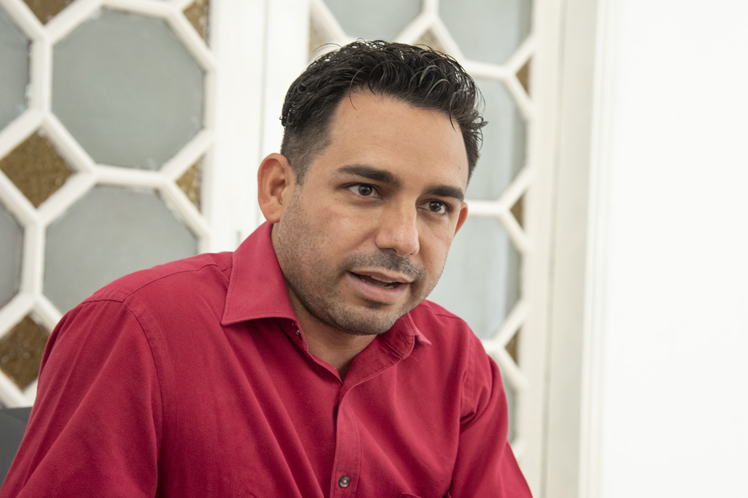Havana, Cuba: For lawyer Rodolfo Echevarría, putting into legal practice in Cuba the novelties, principles and values ??contained in the Families Code project constitutes the main challenge derived from the new regulations, Prensa Latina publishes.
With more than 10 years of work in the treatment of family conflicts, the young jurist assured that this challenge will reach both the courts of justice and the notarial work, called to implement the wide catalog of rights included in the legal body.
The Code, in consultation with the population until April, revolutionizes the traditional conceptions of the family resulting from marriage as the only way of constitution -he stated- to accommodate other existing models in society, and that can be formed by different ways, including de facto union affective
These are new paradigms included in the Constitution approved in 2019, and which dedicates space to aspects as specific as affections, ?a category from Psychology and that the Code incorporates, although Brazil is the country that uses it for the first time in its jurisprudence?.
Among the fundamental aspects of the legal provision, Echevarría highlighted the incorporation of a group of principles of family law, such as plurality, non-discrimination, respect for the preference and autonomy of people with disabilities and older adults, among others.
All this constitutes a novelty and at the same time a challenge for legal professionals, to which is added the transversal nature of the treatment of domestic violence, the specialist stressed.
The correspondence between the contents of the text with international standards signed by Cuba will also focus the attention of jurists, although in cases such as the international conventions on the Rights of the Child, the Rights of Persons with Disabilities and the Elimination of All Forms of Discrimination against Women -he warned- were previously used on the Island to solve conflicts.
Establishing a connection between the Code and these treaties, he added that the term responsibility or responsibility of the parents appears in the International Convention on the Rights of the Child on about 14 occasions, and that of “parental responsibility” is used specifically in its Foundations. .
Similarly, the new provision draws on comparative law, by taking as a reference the most advanced legislation in this area, including the Civil and Commercial Code of Argentina, which in one of its books dedicated to families also uses the expression responsibility parental.
Hence, the Cuban norm assumes it to replace the old concept of parental authority.
?It seeks to establish a new paradigm of understanding parental relationships, from a model based on the absolute power of parents over their children, to one where it is increasingly democratic and where children, as they grow older, have greater participation in decision-making?.
Echevarría speaks from his experience as a lawyer at the Specialized Law Firm for Cassation Appeals, where he has managed ? for example ? to have a court grant custody and care of a minor in favor of the grandmother, because it has been in the best interest of the child. , when the mother died and had no affective bond with the father.
They are socio-family realities existing in Cuba today that the project will try to regulate, he insisted, and this will mean greater involvement in the parties that intervene in the processes as plaintiffs or as defendants and, therefore, greater action by judicial entities.
In this regard, he pointed out that the Law on Courts of Justice approved last year by the National Assembly of People’s Power (parliament) and in force since January determined the creation of Family Courts in the municipal, provincial and Supreme courts, which which will contribute to a greater specialization in these subjects.
“The Code must also project, after its possible approval, modifications to other legal norms, such as the Civil Code or the Civil Status Registry Law, to temper them to their contents,” he said.
The rigor in the application of these contents must be the maximum for the professionals of this branch in Cuba, for which the National Organization of Collective Law Firms began training actions from the publication of version 22 of the document, which already has two more updates, based on the exchange with experts and deputies.
“Academicians, professors in the field of family law and lawyers have given workshops, seminars and in this period of pandemic also online conferences, taking advantage of the benefits of technology, and it is expected that these actions will increase in the future”, insisted the attorney.
The 24th edition of the Family Code that is submitted to the consultation with the citizens will be enriched based on their criteria and will form a new version, on which Parliament must give the green light, and then be voted on in a referendum.

